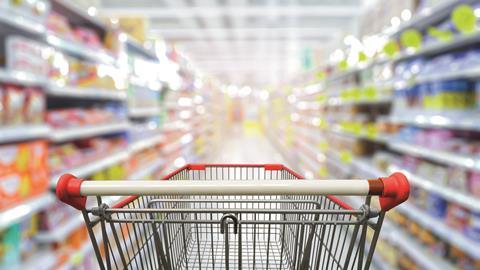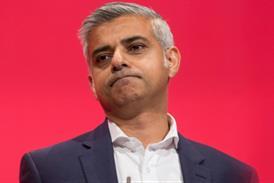The reputation of politicians ebbs and flows, but now deep-sea creatures more often than not come to mind, such are the country’s scars from recent prime ministers the ever-lively Theresa May, the trustworthy Boris Johnson and the wildly off-the-cuff Liz Truss. If the Tories’ homework had to be marked, accommodating for the Covid-19 pandemic and the dreadful Ukraine war, the school report would make for grim reading.

Against this low threshold of opinion comes Ed Davey, leader of the Liberal Democrats, a party that really does not want to be in government at a national level as opposed to being seen to be fair and reasonable in The Guardian. Such was the crass ignorance – nay, stupidity – of his recent musings on the UK food system that even the respected Guardian financial editor Nils Pratley had to put him right.
Davey sought in the week of local elections to describe the UK supermarkets as super-normal profiteers. Such claims are commonplace in certain circles at times, even though, through most of a food commodity cycle, the major UK supermarkets tend to pay the highest rather than the lowest prices. However, with UK food inflation running at 15% to 20%, Davey went on to that bastion of rigour for some, the BBC’s Today programme, to pronounce the supermarkets, more or less, as rip-off-Britain merchants.
More bizarre still, to normal people, never mind the largely beleaguered UK food system, Davey went on to suggest that the Competition and Markets Authority (CMA) should investigate the workings of the supermarkets – something the CMA’s predecessor the Competition Commission did more than once and, quelle surprise, found an intensely competitive industry. Indeed, post the Morrison-Safeway combination, the industry is a construct of the British regulator, as Asda and Sainsbury executives found to considerable cost and legal fees.
Parallel universe
The CMA is a rather bizarre pseudo-intellectual place that lives in a well-feathered barn detached from mere mortals, a parallel universe that has allowed it, without scrutiny, to make quite remarkable and fantastic decisions over the years. Indeed, if any organisation sums up the dark side of the legalistic-bureaucratic-technocratic world that does much to bleed the UK of its energy, innovation and entrepreneurship then it is organisations like the CMA. Hence, one should not be surprised to see Davey’s idiotic recommendation; one that would cost tens of millions of pounds for what? Answer, in the words of Frankie Goes to Hollywood, “absolutely nothing”.
Now, high food inflation is a serious political matter, not least because the poor suffer; they spend much more on food, and energy, than the wealthier. Dealing with the regressive nature of high food inflation should, to me, be a matter for a Minister for the Food System, who with a small secretariat can advise a prime minister on priorities like what do people spend their money on when it comes to food, food and the curriculum, public procurement and food, British food standards and many other relevant matters? Maybe even address the key question: do the British pay enough for their food?

Indeed, should Davey have bothered, he would have seen that the food industry had delivered unbelievable value to consumers for decades, with a proportion of household income expended on food falling from over 30% at the end of the Second World War to somewhere around 10%. However, he has chosen to focus on a narrow period when food inflation has, for transparent reasons largely outside the control of supermarkets, restaurants, chip shops and their respective supply chains, rocketed for cheap political sound bites; fish-and-chip prices are up 25%, too – get the CMA down the chippy!
Indeed, as Pratley identifies, UK supermarkets have low operating margins or returns on sales – in the case of the German discounters suboptimally low – and far from stellar capital returns; mid-single-digit percentages excluding billions of provisions and write-downs. I would suggest that Davey would not have outlaid his own dosh for such returns after massive effort and, more to the point, supermarket founders Jack Cohen, Ken Morrison and John Sainsbury may not have done so either with such present outcomes.
The UK food system needs intelligent, not stupid, debate if it wants secure supplies of safe, nutritious, wholesome food produced in a way that is kinder to animals and sustains the environment; consumers may need to pay more for it, not less. Pressurising supermarkets with idiotic CMA investigations is also the last thing British farmers, growers and processors need.
Dr Clive Black is vice-chairman of Shore Capital Markets
































No comments yet